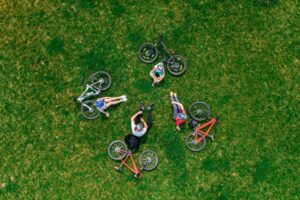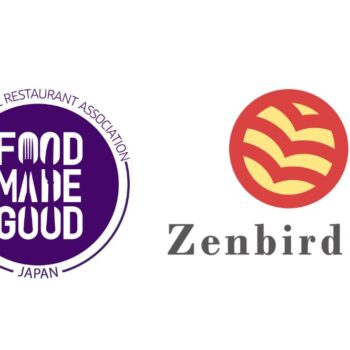
Zenbird leads Kyoto Sustainable Tour, highlighting Edo Period circular economy practices
- On Jun 7, 2024
- chiang mai, Chiang Mai University, Circular Economy, Edo Era, ethical, Kyoto City, sustainable tour, Thailand, tour, upcycling
Zenbird hosted professors and students from Chiang Mai University on a tour of Kyoto to visit stores that are committed to sustainability. Zenbird, operated by Harch, is an English-language web magazine that shares sustainable ideas and initiatives from Japan.
Learning about consumption, in particular circular consumption, helps us move the world in the better direction, be it addressing the issue of limited resources, ensuring fair wages, or tackling the climate crisis. And one way to do that is to realize that we are making and wasting in a highly detrimental way.
From what we know about consumption during the Edo Period (referring to the Circular Edonomy), there are ways to make our consumption more sustainable, more circular. That can come in two of many ways: referencing the 5 R’s in ancient Japan, and asking where the things we buy came from and will go.
That is exactly what the Kyoto Sustainable Tour is about. We conducted the tour on May 10, receiving our guests from Chiang Mai University. The students were able to visit some of the biggest sustainable stores in Kyoto City. These stores show us how concepts of Repair and Reuse of 5 R’s are much alive, and how they help communicate the origins of the products.
Beginning with our first stop, Ogawa Coffee embraced us at their Sakaimachi Store, just north of the Nishiki Market. Partaking in the carefully prepared cloth flannel coffee and Kyoto wheat bread, the students learnt how the coffee brand plans to create an ethical coffee culture while being responsible environmentally and benefitting society.

(Image: Zenbird)
The students then made their way towards the nearby MOTHERHOUSE, an ethical bag brand. The students gained insight into how the brand works with artisans overseas while respecting the local work cultures and local resources. They also discovered MOTHEHOUSE’s efforts to repair, upcycle and return (materials to nature), examples of extending product lifespan and keeping material in the economy for as long as possible.

(Image: Zenbird)
Next, SISAM Fair Trade showed us the various fair trade products around their Ura Teramachi Dori. With a focus on organic cotton, the staff told us the story of the arduous journey of cotton in the hands of multiple stakeholders, linking it to the true face of sustainable fashion. It is indeed a reminder of “what you buy is what you vote,” that we should think why our money is being invested in, because of how many people we can benefit by buying fair trade products.

(Image: Zenbird)
Before we broke for lunch, we visited GOOD NATURE STATION. Their conductor/guide brought us around the building, from the intrinsically designed hotel, to the beauty stores focused on wellness, to the compost to prevent food waste. One could tell the breadth of their work towards sustainability even to the minute details.

(Image: Zenbird)
Though a slightly late lunch, the students were treated to a vegan meal specially prepared by TU CASA, while discovering the extent of sustainable efforts seldom found in other establishments, from vegan food to sustainable accommodation to use of renewable energy. The students found another common ground to compare notes too, sharing the vegan culture in Thailand with the cafe owners of TU CASA.

(Image: Zenbird)
The tour parted as the students looked for their next destinations to enjoy Kyoto: looking for reuse fashion and products! Looks like they are now a part of the Reuse Generation of Kyoto!
Zenbird will continue to provide information on sustainable initiatives in Japan.
[Reference] Kyoto Sustainable Tour highlights Edo Period circular economy practices | Zenbird
[Related Site] Zenbird


![[Circular Yokohama] Received the second Kanagawa Decarbonization Award](https://harch.jp/wp-content/uploads/2026/02/datsutansotaisho_202602-300x200.jpg)




